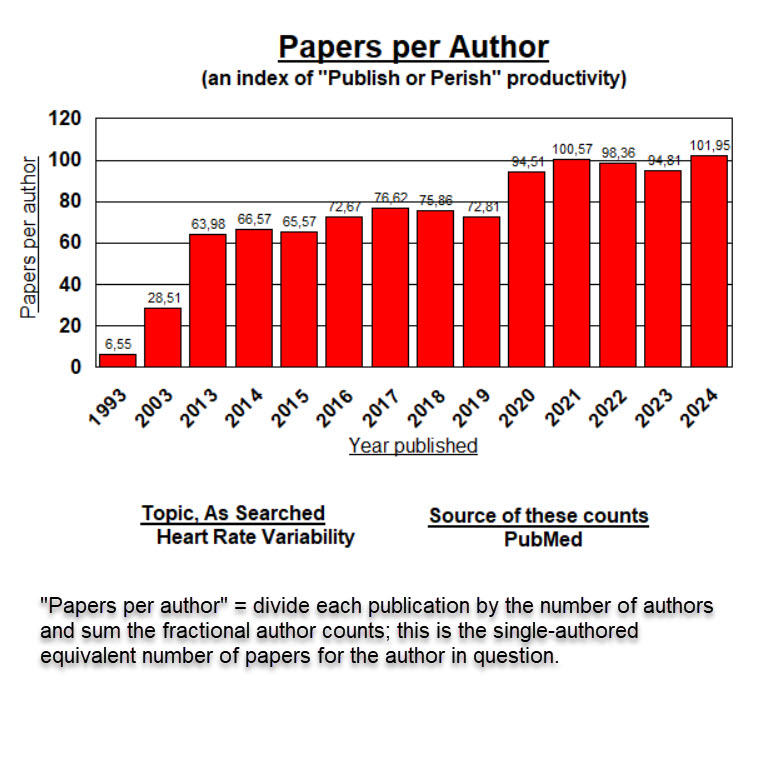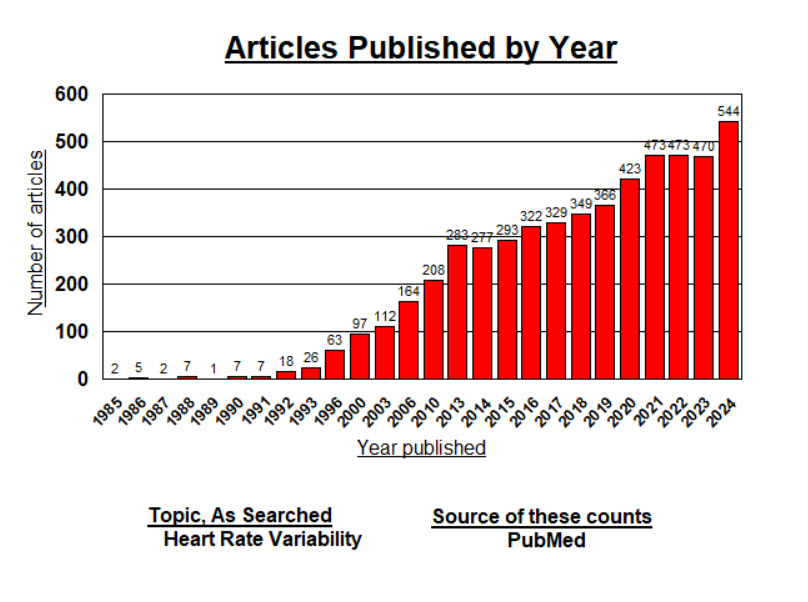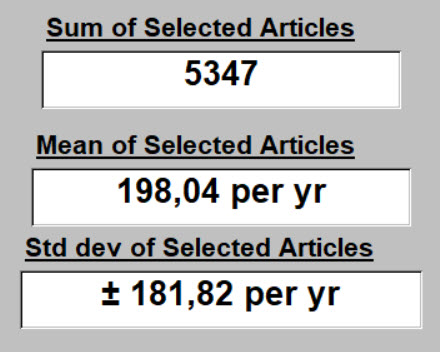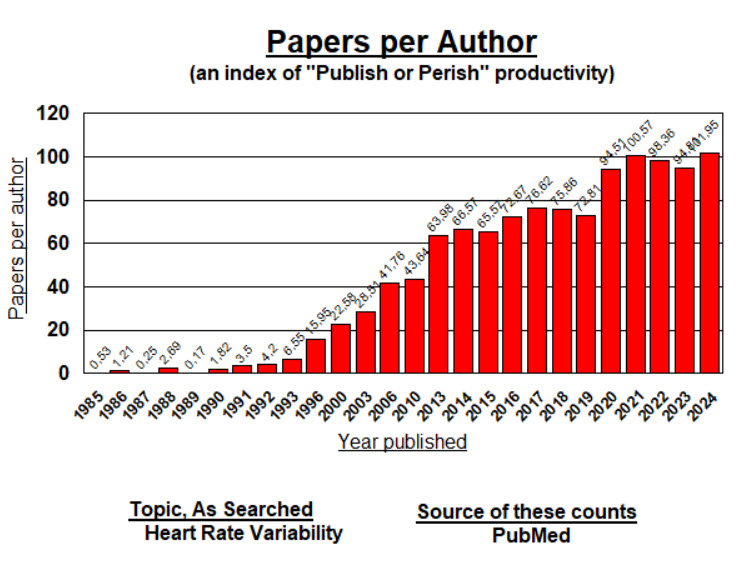A thought or two about productivity
Who lead us into this dark forest?
In a Facebook Group devoted to sharing information for those with “long-term” COVID-19, something seemed to manifest for me that I’ll now share.
Several individuals presented a deep level of dedication to what I’ll call “knowing more” about a specific topic in the domain of Cardiology: Heart Rate Variability and its measurement.
And without a doubt, several expressed a level of mastery of that topic.
Now, perhaps they are Cardiologists. But instead, I think they are simply students of this topic who decided to get real close to that subject of Heart Rate Variability. Why? Well, because they or someone they are close to has “long-term” COVID-19, isn’t over that entity yet, and inspiring hope that Heart Rate Variability may help to make it all better one day. At least, be a piece of, “better.”
Where did that come from? Who leads into (and hopefully, out of) the woods of HRV?
Some would say that it comes directly from today’s current system of Medicine and medical practice. Others might add that it comes from contact with people who have instruments and other things to sell. (No reason to exclude medical practitioners from that association).
Knowing one’s value of Heart Rate Variability is just one example. Scanning blog comments and replies will provide a host of other variables, and each with a willingness expressed to share what one has learned so far from and about, the illness at the center of such discussions.
That’s all very heart warming. When Medicine fails the patient, the patient turns elsewhere. And that includes to other patients for advice. That has certainly blossomed during the COVID era but isn’t new. The Internet makes it bigger. Suddenly, your neighbor is everywhere.
The abandonment of Medicine’s extant system is not complete. Most still seek out consultatons with medical professionals. But let’s get specific in our approach here: these individuals are increasingly closing in on principles of physiology, and the measurement tools involved, that in the not too distant past, belonged to those guys with white coats, running around in labs and hospital corridors.
Not just physiology of course. Sharing pharmacology tips is just as or more prevalent.
It's not "their" fault. The system has lost its way and "they" aren't waiting around for its guidance.
So is that a problem?
Most Medical Centers have given up on applying leeches to patients with congestive heart failure and fluid overload.
Is Heart Rate Variability measurement and expertise just the latest leech?
Let’s get a little more rigid with the extant system and its results.
Here below is a graphic representation which may help me make a point.
We’ll see.
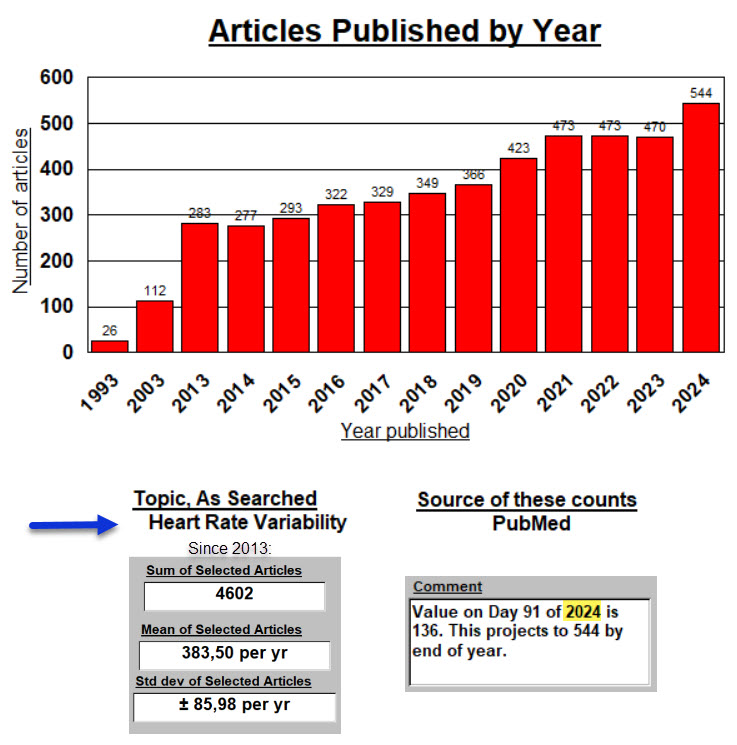
Let me help with the above graph.
It’s the number of published articles about Heart Rate Variability, referenced and available through PubMed. Years 1993 and 2003 are thrown in for comparison. But its mostly that from 2013 to 2023, year by year. Clearly, more articles about HRV were published than in preceding years.
A total of 4 602 publications. Year 2024 is a projected value since it’s not done yet.
So it looks like one could find from these data, evidence for ever-increasing published output about HRV.
Here below is one more graph …
“Papers per author” is another metric used to follow such output of publications, and once again, as found through PubMed. Using other sources, the numbers may vary a bit, but not the trend. Have a look.
Understand that this metric reflects the results of playing the game of “Publish or Perish.”
Included is a definition of how this metric is calculated, but don’t get lost in that. Essentially, it reflects the output or paper productivity of those who are recognized as experts in the field of HRV: mostly Cardiologists but others as well.
If it helps to make the point for the reader, below are same data as above, but with additional years added to better appreciate the evolution of publications on Heart Rate Variability.
In the earliest years, the interest was mostly on heart rate variability in diabetes and neo-nates, with or without SIDS. Its use to explore links between the autonomic nervous system, cardiac function and exercise appeared in in 1991.
See a significant change during the "COVID years?"
I don't. And recall that 2024 data are a projection, so we'll see.
A valid question: "What's driving this ?"
And another: How much is that "driver" making choices and taking decisions along the route of scientific travel, to help those with LTC ?
If you interpret this as showing increased output year by year (2024 is again projected based on past values) then you’re on the right path.
So?
Is knowing one’s HRV going to get you over your problem, specifically if you’ve got “long-term” COVID-19 ?
Lots of people would like that.
Depending on the region of the globe and how it gets counted, that’s 10% to 20% (W.H.O.) of those who caught COVID-19. Commonly seen figures ? 13.8% up to 45% in a study published in the Lancet. Or, 6% to 16% in various U.S. States. You may land on a figure that says that in Europe, about 17 million people have “long-term” COVID-19 (I’ve stuck with that phrasing of this illness, since 2020). One can find estimates presented by experts that suggest that those figures are much too low.
So ?
Well the goal of Medicine might be stated as: “Relieve suffering, and heal the sick where possible.”
Have the 385±86 papers published per year since 2013 told us how to do that through Heart Rate Variability measurements for those with “long-term” COVID-19 ?
Or just supported sales of all types ?
And an important aside, even though I didn’t read all 4 602 papers, some do report a lack of value in applying HRV measurement in certain settings where it has been applied. Does it really accurately reflect your level of sympathetic nervous system stress ? Depends on who you ask, even in Cardiology circles. The graphs suggest HRV is still a hot topic. And yet at recent yearly Cardiology conferences, other electrophysiology topics (like electroporation for A-fib) seem to have pushed HRV off the stage.
Perhaps you can explain to me how it has consistently relieved suffering and healed the sick in the setting of LTC, if you know.
If not, perhaps we should agree to send HRV the way of the leeches.
You may like to add: “Well it’s just one little piece of the larger puzzle. But very important and should not be overlooked. Here’s where I bought mine.”
Or: One may not capture actual patient benefit, or be able to count those benefit events, just by following the trends in the numbers of publications.
Hunh ?
Here’s a suggestion.
The mindset that is required to get one deeply into the woods of HRV, leading to a thorough understanding of the topic, may not be the right mindset for those with “long-term” COVID-19.
Just an idea.
“Lost in the thick of thin things.”
Potentially valuable in other diagnoses ? That’s for another day.
But most people were raised with a respect for a system of care that isn’t always on the right track. “One day, they’ll get it right.” Who says ?
Thinking 'out of the box' as a scientist or practitioner in today’s market, may quickly get you and your sought after job, or professional tenure, onto the “Perish!” Side of the “Publish or Perish” scales. Yes, thankfully, one can still find those whose devotion to Medical Practice is life-long and unswerving. It’s the primary force protecting their patients from complications. Especially when they are found wandering in the dark woods of physiology or pharmacology.
For the LTC clan, the apparent productivity seen in the above graphs intentionally limited to HRV, may be wasted energy. The fruit of doing things as we always have: At least, for the last 10 or 20 years. Then, making people fit into the same old knowledge, as though it was something new. And that may be a current trend as one 'Long COVID Clinic' after another opens up.
Do you have "long-term" COVID-19 ?
You'll probably get, sooner or later, a consultation with a Pulmonologist.
If you're a guy, much less likely that you'll get a consult with a Urologist or Endocrinologist to evaluate your Erectile Dysfunction and testosterone levels.
And yet, the testes have more ACE2 receptors per gram of tissue in the Leydig cells that produce testosterone, than the broncho-pulmonary epithelium. And yes, testosterone levels have taken a hit and don't bounce back over night.
But when something catches on: ("it's a respiratory virus you know..."), watch out for those other organ systems. Especially those with societal taboos.
Summary:
Increased productivity doesn’t always get the problem fixed. Not without a healthy dose of insight.
What’s your new and insightful idea ?
How do you plan to pursue it ? (If you can share that before publication).
A découvrir aussi
- Red heads and fair skin, Vit-D, ACE-II and of course COVID-19
- "Long-term" COVID-19 (or PASC), vaccination, dysautonomia - who knows the relations ?
- Feedback to All about the Abbott Freestyle Libre 3 and Libre 2 system for measuring glucose.

